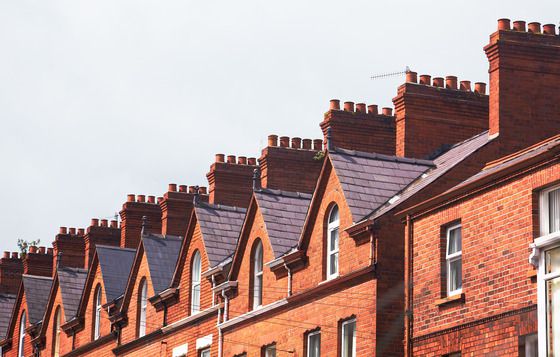Moisture control is the number one preventative for stopping mold growth, and during new home construction is the easiest and earliest way to take measures to prevent future mold outbreaks. Homebuilders are using a number of new ideas and products to help keep homeowners mold-free, because they know prevention is the least expensive way to deal with mold. Some steps being undertaken by contractors during new home construction include:
- Proper site selection: The first and most important step in building a home is choosing its site. If a home is built on a site with a high water table, future moisture problems are greatly reduced. In addition, the proper site will eliminate any extra landscaping or grading that will need to be done to prevent moisture from entering the home or foundation.
- Land drainage and grading: The site a house is built on should be graded, or sloped, so that rain and melted snow flow away from the foundation. In areas where this is not possible, special landscaping and drainage can be installed to redirect the water away from the house.
- Damp-proofing: Damp-proofing is when a special coating is applied on the foundation wall that sits below grade. Make sure your builder uses a durable waterproofing material, as the coating can be damaged during the construction of the home. A high-quality material is essential.
- Elimination of Fake Stucco: When fake stucco is not applied properly, it becomes a breeding ground for mold. Many builders are encouraging homeowners wary of mold to forgo it altogether, as the application of fake stucco needs to be 100% properly and accurately installed to avoid excess moisture between the surface of the material and the walls.
- Positive ventilation: When the air pressure inside is higher than the air pressure outside, this is known as positive ventilation. Adjusting the HVAC system so that the air is positive will force allergens and mold spores outside the home. Negative air will bring the air in from the outside, which is not good for those suffering from allergies. The air should not be set too positively though, or else moisture will be forced into the walls and other small cracks and surfaces.
- Whole-house air purifiers: Primarily used in homes which house individuals with suppressed immune systems, these air purifiers can be rather expensive. However, if you deal with allergies quite frequently, a whole-house air purifier is an excellent way to prevent allergens, dust mites, and mold spores from entering the home and making their stay known.
While taking all of these steps will not necessarily save a homeowner from a future battle with mold, following them will significantly reduce excess moisture on the interior and exterior of the home. This extra moisture is the number one factor in the development of mold, and therefore a homeowner’s odds that they will remain mold-free will be high.


1 comment